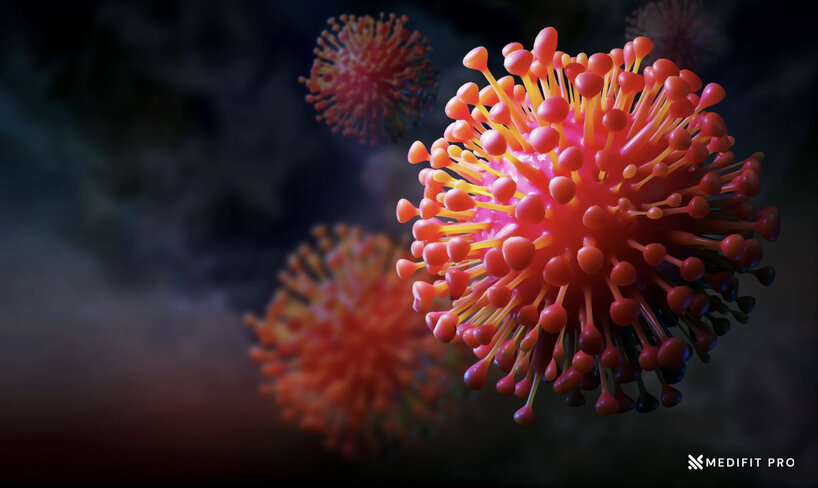The COVID-19 pandemic has upended our world in unprecedented ways. As of this writing, it has infected over 500 million people and claimed over 6 million lives globally. Scientists have been working tirelessly to understand the origins of the virus, and there is ongoing debate over whether it emerged naturally or was the result of a laboratory leak.
The natural origin hypothesis suggests that the virus may have originated in bats and was transmitted to humans through an intermediate animal host, such as a pangolin. The lab leak hypothesis suggests that the virus may have accidentally escaped from a laboratory in Wuhan, China. Both hypotheses have gained significant attention and have been subject to intense scientific and political debate.
The purpose of this article is to provide an overview of the debate surrounding the origin of COVID-19, including a discussion of the evidence supporting each hypothesis. We will also examine the role of scientific investigation in resolving the debate and discuss the implications of the lab leak hypothesis for global health and international relations. By the end of this article, readers should have a better understanding of the current state of knowledge on this crucial issue.
The Natural Origin Hypothesis
The origins of COVID-19 have been a topic of intense scientific inquiry and debate since the pandemic first emerged. One of the leading hypotheses is the natural origin hypothesis, which suggests that the virus originated in animals before making the jump to humans.
Evidence Supporting the Natural Origin Hypothesis
There is substantial evidence supporting the natural origin hypothesis. For example, genetic sequencing of the virus has revealed that it shares a high degree of similarity with other coronaviruses found in bats and pangolins. This suggests that the virus may have originated in these animals and then jumped to humans.
In addition, the outbreak was first identified in Wuhan, China, which is in close proximity to regions where bats and pangolins are known to live. This geographic proximity further supports the theory that the virus may have originated in these animals.
Theory of Transmission Through an Intermediate Host
The theory of transmission through an intermediate host suggests that the virus was transmitted to humans through an intermediate animal host, such as a pangolin. Pangolins are known to carry coronaviruses that are similar to COVID-19, making them a likely candidate for the intermediate host.
Examination of the Weaknesses and Limitations of the Natural Origin Hypothesis
Despite the evidence supporting the natural origin hypothesis, there are also weaknesses and limitations to this theory. For example, the intermediate animal host has not been definitively identified, and it is possible that the virus was transmitted directly from bats to humans.
Additionally, some have questioned whether the virus could have evolved naturally to infect humans so efficiently. This has led to speculation that the virus may have been genetically engineered or manipulated in a laboratory setting. However, there is currently no definitive evidence to support this theory.
The Lab Leak Hypothesis
The lab leak hypothesis suggests that COVID-19 may have originated from a laboratory, rather than from animals. This theory has gained traction in recent months, as scientists and policymakers have called for further investigation into the origins of the virus.
Evidence Supporting the Lab Leak Hypothesis
There are several pieces of evidence supporting the lab leak hypothesis. For example, the Wuhan Institute of Virology, a research institute in China, has been studying coronaviruses in bats for many years. It is possible that the virus may have accidentally escaped from the laboratory, either through a breach in the facility’s containment procedures or through human error.
In addition, some have pointed to the fact that several of the early cases of COVID-19 in Wuhan were linked to a seafood market, which has led to speculation that the virus may have originated from the laboratory and then spread to the market.
Theory of Accidental Escape from a Laboratory
The theory of accidental escape from a laboratory suggests that the virus may have been accidentally released from the Wuhan Institute of Virology. This theory posits that the virus may have been under study at the laboratory and that it accidentally escaped due to a breach in containment procedures or human error.
Weaknesses and Limitations of the Lab Leak Hypothesis
Despite the evidence supporting the lab leak hypothesis, there are also weaknesses and limitations to this theory. For example, there is currently no definitive evidence to support the theory that the virus escaped from the Wuhan Institute of Virology or any other laboratory. Additionally, some experts have pointed out that it is unlikely that a laboratory accident would have resulted in a virus that is so well-adapted to infecting humans.
The Debate Over the Origin of COVID-19
The origins of COVID-19 have been a topic of intense debate among scientists and policymakers since the early days of the pandemic. While the natural origin hypothesis and the lab leak hypothesis have both been put forward, the scientific and political debates surrounding the origins of the virus remain ongoing.
Scientific and Political Debates Surrounding the Origins of COVID-19
The scientific debate over the origins of COVID-19 has been marked by intense scrutiny and speculation, as researchers and experts have sought to determine the true origin of the virus. Meanwhile, the political debate over the origins of COVID-19 has been influenced by a range of factors, including geopolitical tensions, media coverage, and public opinion.
Geopolitical tensions have played a significant role in shaping the debate over the origins of COVID-19, particularly in the context of US-China relations. The Trump administration, in particular, has been highly critical of China’s handling of the outbreak and has suggested that the virus may have originated in a laboratory in Wuhan, China.
Media coverage has also played a role in shaping the debate over the origins of COVID-19. As the pandemic has unfolded, media outlets around the world have covered the story extensively, often highlighting conflicting reports and conflicting opinions on the origin of the virus.
Public opinion has also been a factor in the debate over the origins of COVID-19. As the pandemic has continued to impact people’s lives around the world, many have become invested in understanding where the virus came from and how it can be prevented in the future.
Role of Scientific Investigation in Resolving the Debate
Ultimately, it will be scientific investigation that determines the true origin of COVID-19. While the debate over the origins of the virus may continue for some time, it is important to continue studying the virus in order to better understand how it emerged and how it can be prevented in the future.
As scientists continue to study the virus and its origins, it is important for policymakers to support and fund this research, in order to help prevent future pandemics and protect public health around the world.
The Future of COVID-19 Research
The ongoing debate over the origin of COVID-19 has significant implications for future research on the virus. As scientists continue to investigate the origins of the pandemic, they must consider a range of ethical and scientific considerations in order to advance our understanding of the virus and prevent future outbreaks.
Implications of the Debate Over the Origin of COVID-19 for Future Research
The debate over the origin of COVID-19 has highlighted the importance of understanding the origins of infectious diseases, particularly in the context of global health security. Moving forward, it will be essential to continue studying the virus and its origins in order to better understand how it emerged and how it can be prevented in the future.
Ethical and Scientific Considerations Involved in Investigating the Origins of a Pandemic
Investigating the origins of a pandemic involves a range of ethical and scientific considerations, including considerations related to biosafety, data sharing, and international cooperation. It is essential for researchers to follow established protocols and guidelines in order to ensure that their work is conducted safely and responsibly.
Importance of Understanding the Origins of COVID-19 for Preventing Future Pandemics
Understanding the origins of COVID-19 is critical for preventing future pandemics, as it can help researchers identify and monitor emerging infectious diseases and develop effective strategies for preventing their spread. By continuing to study the virus and its origins, we can work to prevent future outbreaks and protect public health around the world.
Conclusion
In conclusion, the debate over the origins of COVID-19 highlights the importance of scientific inquiry and international cooperation in addressing global health challenges. While the natural origin hypothesis is the prevailing theory, the lab leak hypothesis cannot be ruled out, and its investigation may provide valuable insights into preventing future pandemics.
It is critical for scientists, policymakers, and the public to approach this issue with transparency, objectivity, and a commitment to truth-seeking. Only through rigorous scientific investigation can we determine the true origin of COVID-19 and develop effective strategies to prevent future pandemics.
The debate over the origin of COVID-19 has also shed light on the complex interplay between science, politics, and public opinion. It is essential for policymakers and media outlets to accurately and objectively communicate scientific findings to the public, and to avoid politicizing scientific issues for personal gain.
In the end, the investigation into the origin of COVID-19 is not just about answering a scientific question, but about preventing future pandemics and promoting global health security. By working together and approaching this issue with a spirit of cooperation and scientific rigor, we can take meaningful steps towards protecting public health and ensuring a safer and healthier world for all.
Reference

























Recent Comments